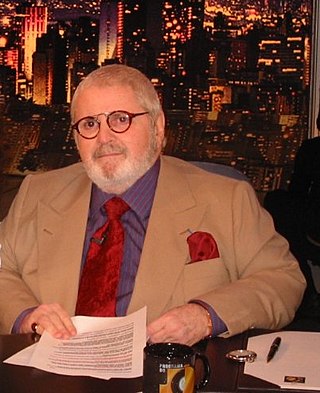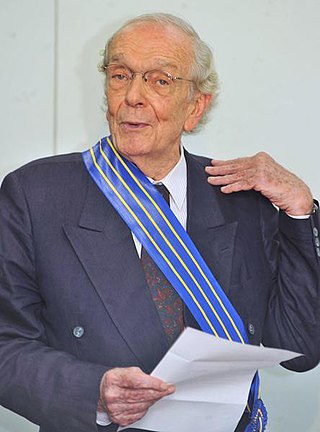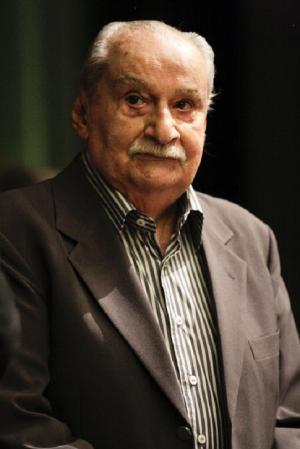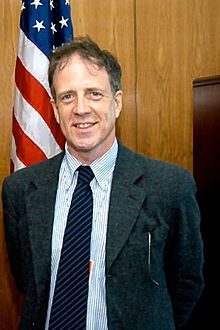
Gilberto Passos Gil Moreira, is a Brazilian singer-songwriter and politician, known for both his musical innovation and political activism. From 2003 to 2008, he served as Brazil's Minister of Culture in the administration of President Luiz Inácio Lula da Silva. Gil's musical style incorporates an eclectic range of influences, including rock, Brazilian genres including samba, African music, and reggae.
The Maria Moors Cabot Prizes are the oldest international awards in the field of journalism. They are presented each fall by the Trustees of Columbia University to journalists in the Western hemisphere who are viewed as having made a significant contributions to upholding freedom of the press in the Americas and Inter-American understanding. Since 2003, the prize can be awarded to an organization instead of an individual.
Márcio Gonçalves Bentes de Souza was a Brazilian journalist and writer, recognized for his focus on the Amazon basin.

José Eugênio Soares, known professionally as Jô Soares, or Jô, was a Brazilian comedian, talk show host, author, musician, actor and writer.

Roberto Pisani Marinho was a Brazilian businessman and tycoon who was the founder and owner of media conglomerate Grupo Globo from 1925 to 2003, and during this period expanded the company from newspapers to radio and television.

Alberto Dines was a Brazilian journalist and writer.

Carlos Heitor Cony was a Brazilian journalist and writer. He was a member of the Brazilian Academy of Letters.

Carlos Alberto Libânio Christo, better known as Frei Betto, is a Brazilian writer, political activist, philosopher, liberation theologian, and Dominican friar.

Taís Bianca Gama de Araújo Ramos is a Brazilian actress, TV host and model. Described by the media and general public as one of the great Brazilian actresses for her versatility in playing comedic and dramatic characters, in addition to being a very famous celebrity in Brazil.

Jornal Nacional is the flagship television newscast of TV Globo. First airing on September 1, 1969, according to IBOPE, in the week of September 28—October 4, 2015, it was the second most watched program in Brazilian television, with an average of 26,007,251 viewers per minute and for 5.5 million people worldwide via Globo International.

Presidential elections were held in Brazil in 1989, with the first round on November 15 and a second round on December 17. They were the first direct presidential elections since 1960, the first to be held using a two-round system and the first to take place under the 1988 constitution, which followed two decades of authoritarian rule after the 1964 Brazilian coup d'état.
Adrino Aragão, , is a Brazilian short-story writer. In the 1970's And 1980's, he was a prominent Desed magazine (Brasília) and BIP – Boletim de Informação ao Pessoal, do Banco do Brasil S.A. reporter. BIP had a circulation of over 100.000 every week. Adrino Aragão wrote several reviews of new Brazilian books. After his retirement, he wrote essays on Comparative Literature and Literary Theory for Jornal do Brasil/Rio de Janeiro and academicals publications.

Brazil–Iran relations are the bilateral relations between the Federative Republic of Brazil and the Islamic Republic of Iran. Relations are characterized by economic and diplomatic cooperation and are quite friendly. Iran has a productive trade balance with Brazil. The two governments signed a document to bolster cooperation during the G-15 Summit in Tehran in 2010. However, since the election of former Brazilian president, Dilma Rousseff, relations between the two countries recently have deteriorated greatly, following Rousseff shifting Brazil away from Iran due to Iran's violation of human and civil rights. Mahmoud Ahmadinejad's media adviser, Ali Akbar Javanfekr, was quoted as stating that Rousseff had "destroyed years of good relations" between them. He denied making such a statement.

The São Paulo Prize for Literature is a Brazilian literary prize for novels written in the Portuguese language and published in Brazil. It was established in 2008 by the Secretary of Culture for the State of São Paulo. Though not as old as other literary prizes in Brazil, such as the Machado de Assis Prize, the São Paulo Prize has quickly risen in prestige. For example, in 2011, there were 221 submissions for the prize. This rapid rise in popularity is partly because of the large cash prize. Every year two prizes of R$200,000 each are awarded—one for the best novel of the year by an established author, and the other for the best novel of the year by a debut author—making the São Paulo Prize the largest prize for a published work in Brazil, and one of the largest literary prizes in the world. Ten finalists are listed for each award, during the Festival da Mantiqueira, and the winners are announced on the first Monday of August in the Museum of the Portuguese Language.
Alan Riding is a British author and journalist. He was a long-time foreign correspondent for The New York Times, most recently as the paper's European Cultural Correspondent based in Paris. His latest book is And The Show Went On: Cultural Life in Nazi-Occupied Paris.

Cristóvão Tezza is a Brazilian novelist and university professor.
Ana Maria Bahiana is a Brazilian-born Los Angeles-based American author, journalist and lecturer known for her work in cultural journalism. She has worked in a variety of media: newspapers, magazines, television, radio and the Internet.

Joênia Wapichana is the first indigenous lawyer in Brazil and a member of the Wapixana tribe of northern Brazil. After taking a land dispute to the Inter-American Commission on Human Rights, Wapixana became the first indigenous lawyer to argue before the Supreme Court of Brazil. She is the current president of the National Commission for the Defense of the Rights of Indigenous Peoples.

Lilia Katri Moritz Schwarcz is a Brazilian historian and anthropologist. She is a doctor in social anthropology at the University of São Paulo, full professor at the Faculdade de Filosofia, Letras e Ciências Humanas in the same institution, and visiting professor at Princeton University.

Lucas Mendes Campos is a Brazilian journalist and television presenter. He was awarded the Maria Moors Cabot Award, the oldest international journalism awards in the United States. In 2015 Campos was one of the 5 recipients of the award for outstanding reporting on the Americas because of his work dedicated to promoting dialogue and democracy in the Americas.















